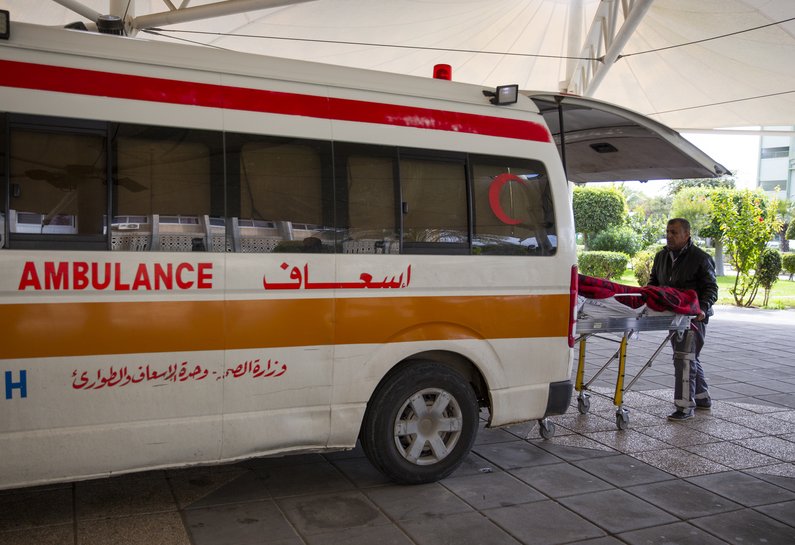“The health sector is always on the edge of collapsing”

“We are operating with minimum capacity to meet a very high demand of health services, of a population that is undergoing emergency after emergency,” Dr Bashar Murad told MAP. “In just 14 years, we have experienced 15 escalations of violence and four wars.”
In this same period, Israel has imposed an illegal closure and blockade on Gaza, maintaining control over Palestinians’ lives and basic needs, imposing collective punishment on two million people. This discriminatory and fragmentary policy has had a profound impact on Palestinian health and has prevented the development of Gaza’s health services.
“We have no capacity to develop the heath sector, as we barely have a break from responding to escalations and wars,” said Dr Bashar. “The health sector is very fragile. It is always on the edge of collapsing.”
Under perpetual blockade and its economy undergoing de-development, Gaza faces persistent shortages of basic healthcare resources, including essential drugs and medical equipment, leaving hospitals and clinics in a constant state of crisis even during supposedly ‘normal’ times.
“Since June 2020, our MRI machine stopped working and the Israeli authorities are refusing to allow the entry of the needed parts to fix it,” said Dr Bashar. “The ultrasound machine is also not working. Due to COVID-19, we have an increased need for oxygen supply, and we bought an oxygen generator from the West Bank in February last year, but we still can’t get it into Gaza.”
Last week, the Palestinian Ministry of Health announced that the Israeli authorities have blocked the entry of new medical radiology devices into Gaza, including X-ray machines and spare parts to fix many broken and out-of-service medical devices. Amid a surge of recent cases of the Omicron variant of COVID-19, these discriminatory restrictions are hampering the pandemic response and risking more Palestinian lives.
Rebuilding homes and lives
The latest COVID-19 crisis facing Gaza comes at a time when reconstruction efforts from the emergency in May last year are lagging. Reuters reports that only 50 of the 1,650 homes destroyed in Israel’s 11-day assault on Gaza in May have been restored. “The reconstruction process has not started yet. Only the rubble has been removed,” explained Dr Bashar.
Rebuilding homes, including for the 10,500 people who are still internally displaced nine months on, remains a priority. But many Palestinians have also endured life-changing injuries that need long-term rehabilitation and treatment, and they now face uncertain futures. “We are still treating 119 cases of people who were permanently injured during the last offensive on Gaza,” said Dr Bashar. “Every offensive on Gaza leaves many people with permanent disabilities, which creates a burden on the health sector.”
This is why MAP’s limb reconstruction services across hospitals in Gaza remain essential. By supporting Palestinian surgeons and providing equipment to hospitals, MAP, and its partner IDEALS, are helping to minimise long-term disability and deliver rehabilitation services for generations of Palestinians who have been injured in systematic and repeated violence.
But until Israel ends its illegal closure of Gaza, and reverses its policies that fragment Palestinian healthcare, doctors like Bashar will continue to face an uphill battle in providing medical care in Gaza. “The general feeling of healthcare workers is that we are in a very dark tunnel with no light appearing at the end of it, and there will be no light if the blockade and the occupation persists.”
Read our latest position paper on how Israel’s systematic discrimination and fragmentation present significant barriers to Palestinian health.
Read this story in Arabic here.
Related content


